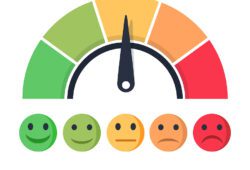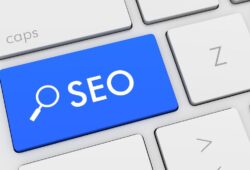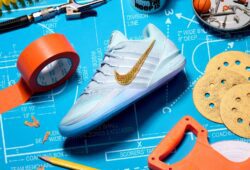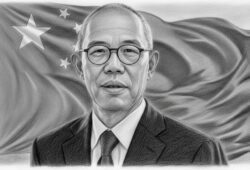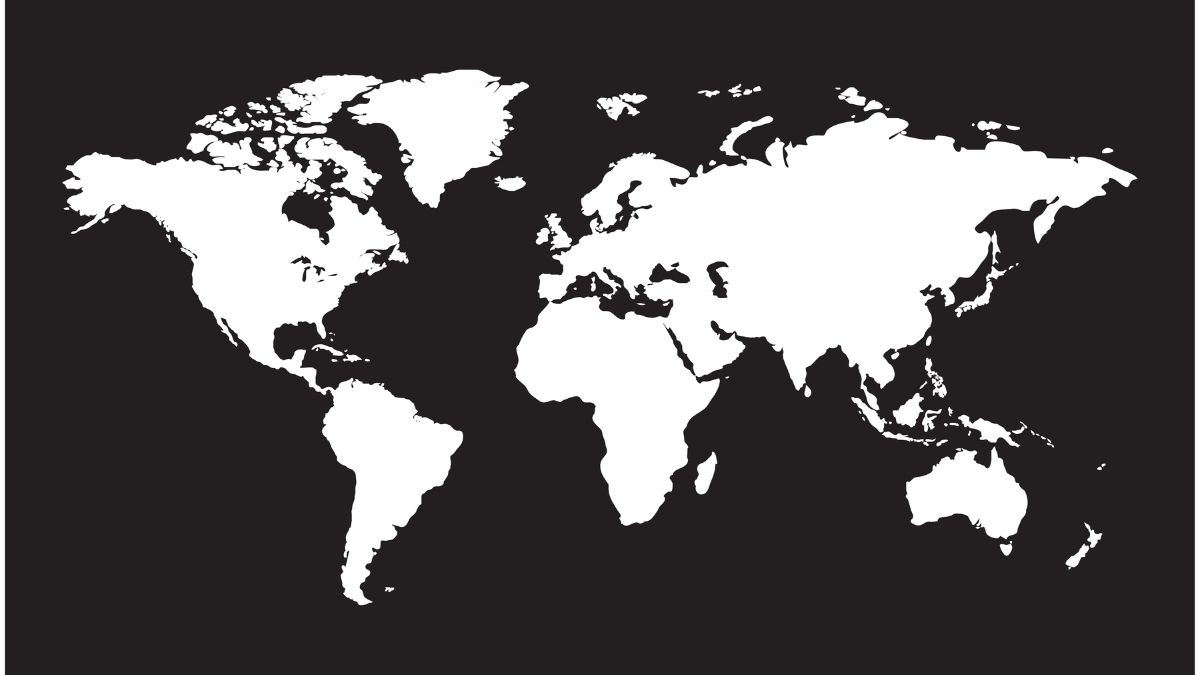
The World Brand Lab has unveiled the 21st edition of its list of the 500 most influential brands in the world, highlighting the importance of technology, mass consumption, and the financial sector among major global benchmarks.
Below is an analysis of the list of the 500 most influential brands in the world, according to World Brand Lab 2024.
How are the most influential brands in the world selected?
The World Brand Lab employs three key indicators to measure a brand’s global influence:
- Market share: The size of the market that the brand conquers and the consistency of its demand.
- Brand loyalty: The ability to retain customers and generate repeat business, supported by metrics such as iTrust Rating.
- Global leadership (including ESG): Evaluates how the brand demonstrates leadership in areas such as sustainability, corporate governance, and social initiatives, drawing on data from SuperFinance.
Based on this analysis, the 500 most influential brands in the world are identified. The World Brand Lab methodology has been refined over 21 years, monitoring more than 8,000 brands worldwide. This report covers 32 countries.
READ ALSO: Marketing trends 2025: Millennials, Gen Z and the boom in social media shopping
The most influential brands in the world by country
One of the most notable data points from the 2024 edition is the rise of Apple, which moved from second place to first, displacing Microsoft to second place. Amazon rounds out the top three.
- Eight of the top ten brands are American, confirming the strong global leadership of multinationals based in the United States.
- Toyota is the only non-American brand in the Top 10, representing the strength of Japan’s automotive industry.
- The technology sector (Apple, Microsoft, Amazon, Google, Tesla, Nvidia) occupies 6 of the top 10 positions, emphasizing the pivotal role of technology and innovation.
READ ALSO: Digital marketing trends that will dominate in 2025 according to Google
Although U.S. companies predominate in the Top 10, many other nations appear throughout the 500 positions. Among the most notable:
- United States: The majority presence includes tech giants (Apple, Microsoft, Amazon, Google, Nvidia), financial (JP Morgan, Citi, Goldman Sachs), consumer (McDonald’s, Coca-Cola, Pepsi), retail (Walmart), etc.
- China: Large state-owned and private groups such as State Grid (#18), Tencent (#35), Huawei (#53), ICBC (#41), Alibaba (#88), as well as emerging brands (TikTok, Haier, etc.).
- Japan: Toyota (#9) and other companies like Sony, Panasonic, Honda, Nintendo, Canon, Mitsubishi, Hitachi, Bridgestone…
- Germany: Brands such as SAP, BMW, Siemens, Bosch, Deutsche Telekom, Lufthansa, among others.
- France: Several of the most recognized luxury brands (Louis Vuitton, Chanel, Hermès, Dior), in addition to industrial/financial groups like BNP Paribas or Accor.
- United Kingdom: HSBC, Vodafone, Tesco, British Airways, among others.
- Switzerland: Nestlé, Rolex, UBS, Credit Suisse (not on the list, but Credit Agricole, which is French, does appear), and other companies.
Which Mexican brands are on the list?
- Corona (Mexico’s iconic beer, currently under AB InBev’s umbrella, but still recognized for its Mexican origin). It appears around 75th place.
- América Móvil: Ranked at 354, this is the telecommunications multinational owned by entrepreneur Carlos Slim. It owns, among others, Telcel in Mexico and multiple operators in Latin America, making it one of the leading telecom firms in the region.
What trends do these 500 most influential brands reveal in 2024?
- Technological transformation: The rise of artificial intelligence drives the emergence of companies like OpenAI, while also consolidating tech giants (Microsoft, Google, Nvidia, Meta) at the top of the ranking.
- Diversification and localization: In the face of geopolitical tensions, multinational brands are opting for more localized strategies, tailoring products and messaging to each region.
- Focus on ESG: The evaluation of environmental, social, and governance (ESG) criteria has become a decisive factor. Companies that can demonstrate sustainable practices gain a competitive edge and bolster their global reputation.
- Resurgence of mass consumption and luxury: The Food & Beverage sector leads with 33 brands, closely followed by Automobiles with 32. Meanwhile, luxury remains solid with century-old brands that reinforce their prestige and tradition.
- Searching for resilience: From the pharmaceutical industry to fashion, the ability to respond to disruptions (whether economic, political, or health-related) determines brands’ staying power in the ranking.
Which brands are new to the 2024 list?
This year, 21 new brands were added to the selection of the 500 most influential. Some of the most notable:
- MINMETALS (China): Occupies 190th place, consolidating its position as one of the largest metal and mineral conglomerates in China.
- Reliance Industries (India): Reflecting the growing presence of South Asia in the global business landscape.
- Coupang (South Korea): A key e-commerce player in Asia, with fast delivery models and logistics innovation.
- ServiceNow (U.S.): An example of the booming cloud-based software sector, driven by the digitalization of business processes.
READ ALSO: Tourism marketing trends in 2025: How will travel change?
The age of brands: century-old traditions and new disruption
Analysis by the World Brand Lab shows that the average age of the brands included is 99.06 years, illustrating the prevalence of century-old corporations that have adapted to multiple economic cycles and industrial revolutions:
- Saint-Gobain (359 years): The French firm leads in longevity, followed by Aviva and Moutai, both exceeding 300 years.
- Food and beverages: This sector has the largest number of long-lived brands (29 out of 33 exceed the century mark).
- China with historic brands: Moutai, Tsingtao, Wuliangye, Bank of China, and AIA stand out as firms with over 100 years of tradition.
COMPLETE list of the 500 most influential brands
- Apple
- Microsoft
- Amazon
- Tesla
- Walmart
- JP Morgan
- McDonald’s
- Toyota
- Nvidia
- Coca-Cola
- Mercedes-Benz
- VISA
- MasterCard
- Oracle
- Nike
- State Grid
- P&G
- Citi
- Broadcom
- YouTube
- ExxonMobil
- Ferrari
- Nestlé
- BMW
- T-Mobile
- Johnson & Johnson
- Shell
- IBM
- Disney
- American Express
- Tencent
- Haier
- AT&T
- Pepsi
- Cisco
- Louis Vuitton
- UPS
- Unilever
- ICBC
- SAP
- Morgan Stanley
- GE
- Rolex
- Chanel
- Bank of America
- Jack Daniel’s
- Samsung
- DHL
- IKEA
- Marlboro
- Ford
- Volkswagen
- FedEx
- Huawei
- Audi
- Honda
- Netflix
- China Resources
- HP
- TSMC
- CCTV
- Dior
- Starbucks
- 20th Century Studios
- 3M
- Dell
- Philips
- X
- Hermès
- L’Oréal
- Budweiser
- Renault
- Adidas
- Porsche
- Corona
- BP
- Heineken
- ING
- eBay
- LEGO
- Carlsberg
- China Mobile
- China Life
- Accenture
- Intel
- Gillette
- HBO
- Cigna Group
- Sony
- MSD
- Canon
- AXA
- Bosch
- Zara
- Thomson Reuters
- Deutsche Telekom
- Adobe
- HSBC
- Vodafone
- Boeing
- TATA
- Hyundai
- Hennessy
- General Motors
- KFC
- SpaceX
- Cartier
- Colgate
- Bloomberg
- Kao
- Kraft Heinz
- TotalEnergies
- Berkshire Hathaway
- UnitedHealth
- Siemens
- Johnnie Walker
- Verizon
- CNPC
- McKesson
- Deloitte
- BNP Paribas
- NTT
- Alibaba
- Warner Bros. Discovery
- Kia
- PwC
- Sinopec
- Lenovo
- Panasonic
- DreamWorks
- Wrigley
- Allianz
- Adecco
- Nasdaq
- Marriott
- Pfizer
- Xbox
- DuPont
- UBS
- Lufthansa
- Goldman Sachs
- Smirnoff Vodka
- Ping An
- Cardinal Health
- Munich Re
- Nintendo
- LG
- Costco
- Lockheed Martin
- Rand
- 7-Eleven
- Tesco
- Standard & Poor’s
- Comcast
- Saudi Aramco
- Assicurazioni Generali
- FIAT
- Fujitsu
- Moët & Chandon
- Tiffany
- Uniqlo
- Mars
- Best Buy
- Danone
- The Home Depot
- Gucci
- The Wall Street Journal
- Prada
- Xerox
- Kleenex
- Orange
- BlackRock
- Uber
- Bottega Veneta
- Emirates Airlines
- IWC
- Beck’s
- Jaguar
- Peugeot
- Absolut Vodka
- McKinsey
- Whole Foods
- Hitachi
- COFCO
- Ralph Lauren
- CVS
- Minmetals
- Vinci
- Raytheon Technologies
- China Construction Bank
- Hilton
- Levi’s
- Harley Davidson
- Metro
- Nivea
- China Southern Power Grid
- BASF
- Wells Fargo
- Archer Daniels Midland
- ABB
- Bank of China
- KPMG
- ENEL
- IDEO
- Nissay
- Standard Chartered
- Associated Press
- Chevrolet
- Volvo
- Burberry
- BCG
- Omega
- B&O
- Moutai
- Deutsche Bank
- Wuliangye
- Campbell’s
- Bentley
- News Corp
- Emerson
- Bacardi
- Burger King
- British Telecom
- Bombardier
- EMC
- Lamborghini
- Lilly
- Delta
- China Telecom
- Capital One
- Virgin Atlantic
- Mazda
- NatWest
- Carrefour
- Sabic
- Foster + Partners
- Swatch
- AFP
- OMA
- Lexus
- Versace
- Anheuser-Busch
- The New York Times
- Telstra
- Kroger
- Bayer
- Nippon Steel
- H&M
- Philip Morris International
- Patek Philippe
- MetLife
- Reliance Industries
- Glencore
- China State Construction
- BBC
- Paramount
- Poly
- Christie’s
- Autodesk
- Novo Nordisk
- Salesforce
- Vogue
- Dun & Bradstreet
- Tokio Marine
- Air France
- AIG
- DOW
- Kellogg’s
- Wesfarmers
- Accor
- Time
- Suzuki
- Sumitomo Electric
- Roche
- Yves Saint Laurent
- Subway
- Air China
- Tsingtao
- Changhong
- Yahoo
- Holcim
- Spotify
- Amgen
- RBC
- Pizza Hut
- Nissan
- CNOOC
- Bridgestone
- Martini
- Sotheby’s
- NEC
- Hyatt
- Sysco
- Progressive
- CITIC Group
- Albertsons
- TikTok
- Sinochem
- Chevron
- Charles Schwab
- USPS
- Baidu
- Ricoh
- Longines
- PDVSA
- Barclays
- Coupang
- Lloyds Bank
- PayPal
- WPP
- PTT
- Gap
- Epson
- BAT
- Thales
- Airtel
- AbbVie
- Coach
- Gazprom
- Goodyear
- Bvlgari
- ASML
- Bertelsmann
- Petrobras
- Audemars Piguet
- Estée Lauder
- Lidl
- Lotte
- Bunge
- BAOWU
- Shiseido
- Agricultural Bank of China
- Fortune
- People’s Daily
- Maersk
- Target
- Land Rover
- HCA
- SK Holdings
- Vacheron Constantin
- NBC
- Honeywell
- KEPCO
- Caterpillar
- OpenAI
- Great-West Lifeco
- Mitsui
- Lowe’s
- Xiaomi
- Japan Tobacco
- Walgreens
- ConocoPhillips
- PlayStation
- Xinhua News Agency
- Zurich
- E.on
- Saint-Gobain
- Hengli
- NextEra Energy
- China Huadian
- Cargill
- Infiniti
- Michelin
- American Airlines
- ABC
- Celine
- NYSE
- Kimberly-Clark
- Rakuten
- Toshiba
- AIA
- Komatsu
- Van Cleef & Arpels
- XCMG
- Shenghong
- Eni
- MaxMara
- Qualcomm
- Aviva
- Crédit Agricole
- United Airlines
- Isuzu
- Beidahuang
- Omnicom
- AMD
- ServiceNow
- Booking
- Equinor
- HCLTech
- Hengtong
- EDF
- Novartis
- Jiangxi Copper
- América Móvil
- Palantir
- Guerlain
- Weiqiao
- Chubb
- Itaú Unibanco
- Royal Bank of Scotland
- Edeka
- FIS
- Louis Dreyfus
- Bristol Myers Squibb
- TD Bank
- Southwest Airlines
- BHP Billiton
- Leroy Merlin
- Publicis Groupe
- DXC Technology
- Santander
- Scotiabank
- Travelers
- Singapore Airlines
- Tyson Foods
- Giorgio Armani
- Sky
- Moncler
- Telus
- Lululemon
- ACS
- Sam’s Club
- Qatar Airways
- AstraZeneca
- Sberbank
- Tongwei
- Petronas
- Balenciaga
- Discover Financial Services
- British Airways
- Allstate
- BBVA
- Dai-ichi Life
- EY
- VMware
- Cenoora
- Capgemini
- KDDI
- Fresenius
- E.Leclerc
- Rio Tinto
- Telefónica
- GCL
- Baker McKenzie
- Viettel
- GDF-Suez
- Hertz
- Red Bull
- ADP
- Mitsubishi
- Japan Post
- Bosideng
- Daikin
- Mercadolibre
- Veolia
- Rémy Martin
- Lancôme
- GEICO
- Clorox
- Decathlon
- STC
- Anthem
- Airbnb
- Intesa Sanpaolo
- Prudential
- MUFG
- Quaker
- Martell
- Purina
- Givenchy
- Nokia
- CNP Assurances
- Airbus
- Conad
- Canada Goose
- Altice
- Temasek
- Infosys
- Aldi
- Compass Group
- Schneider
- Sephora
- Sodexo
- La Poste
- GSK
- Bouygues
- LIC
- Etisalat
- Marubeni Corporation
- Daiwa House
- Safeway
- Diageo
- Société Générale
- Moody’s
- JR
What is the World Brand Lab?
The World Brand Lab was founded in 2003 in New York, becoming one of the leading brand valuation consultancies.
Over its 21 years of experience, it has monitored more than 80,000 brands in 60 countries, thoroughly analyzing their evolution, competitiveness, and global prestige. Guided by renowned academics, this ranking stands as a benchmark for understanding the trends and challenges of the planet’s most influential brands.




